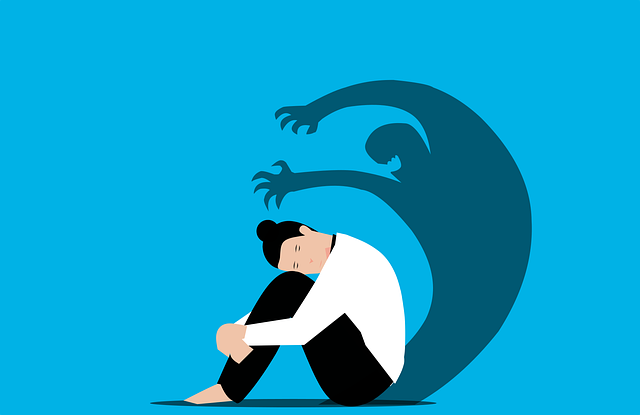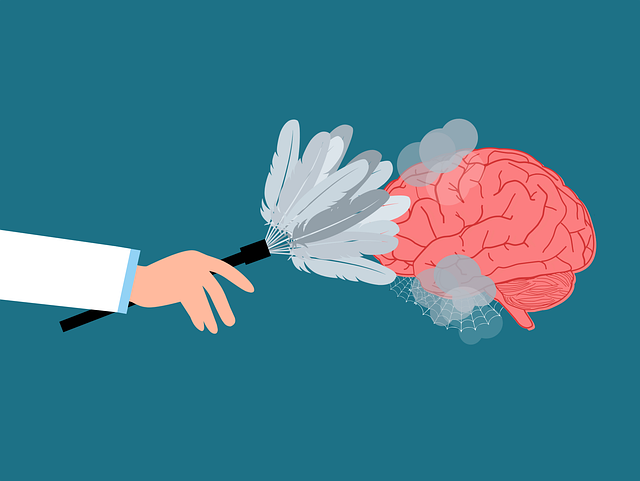Understanding mental wellness needs through self-reflection and assessment is key to developing an effective self-care routine. As highlighted by Arvada Domestic Violence Therapy, this process involves recognizing triggers like anxiety or low self-esteem and tailoring practices such as mindfulness or cognitive behavioral therapy. A holistic self-care routine includes diverse techniques like meditation, journaling, physical activities, hobbies, and communication strategies to support long-term mental wellness and prevent burnout. Healthcare providers can benefit significantly from these practices to achieve balance and resilience.
Develop a powerful mental wellness self-care routine with expert guidance from Arvada Domestic Violence Therapy. Explore the essential steps in Understanding Your Mental Wellness Needs through self-reflection and assessment, identifying personalized techniques and activities. Learn effective strategies in Integrating Self-Care into Daily Life for consistency and sustainability. Discover the building blocks of a robust self-care routine tailored to your unique mental wellness journey.
- Understanding Your Mental Wellness Needs: Self-Reflection and Assessment
- Building Blocks of a Self-Care Routine: Techniques and Activities
- Integrating Self-Care into Daily Life: Strategies for Consistency and Sustainability
Understanding Your Mental Wellness Needs: Self-Reflection and Assessment

Understanding your mental wellness needs is a crucial first step in developing an effective self-care routine. Self-reflection and assessment allow you to recognize the unique challenges and triggers impacting your well-being. This process involves acknowledging your emotions, thoughts, and behaviors, and identifying patterns that may indicate underlying issues such as anxiety or low self-esteem. By engaging in regular introspection, you can gain valuable insights into what helps you thrive and what causes strain.
For instance, individuals seeking Arvada Domestic Violence Therapy might uncover specific stressors related to their experiences. Similarly, a comprehensive mental health assessment could reveal the need for better stress management techniques or enhanced coping strategies. Incorporating self-care practices tailored to your unique needs—whether it’s prioritizing anxiety relief through mindfulness or focusing on self-esteem improvement with cognitive behavioral therapy—is essential in creating a holistic and personalized routine that supports long-term mental wellness.
Building Blocks of a Self-Care Routine: Techniques and Activities

Creating a self-care routine is a powerful tool for maintaining mental wellness, offering a structured approach to nurturing your mind and emotions. The foundation of such a routine lies in incorporating diverse techniques and activities that cater to various aspects of well-being. For instance, Arvada Domestic Violence Therapy emphasizes the significance of self-reflection and mindfulness as basic building blocks. Practices like meditation, journaling, and deep breathing exercises foster awareness and promote a sense of calm, helping individuals manage stress effectively.
Additionally, engaging in physical activities, such as regular exercise or yoga, releases endorphins, enhances mood, and improves overall mental clarity. Incorporating hobbies and creative outlets allows for self-expression and provides an avenue to process emotions constructively. Stress management techniques, coupled with communication strategies that encourage open dialogue with oneself and others, can significantly impact positive thinking and emotional resilience.
Integrating Self-Care into Daily Life: Strategies for Consistency and Sustainability

Integrating self-care into daily life is essential for maintaining mental wellness and preventing burnout. It’s not about finding time for an occasional spa day but rather making conscious choices to nurture your mind, body, and soul consistently. At Arvada Domestic Violence Therapy, we emphasize the importance of creating a sustainable routine that becomes as natural as brushing your teeth.
Start by identifying small moments throughout your day where you can practice self-care—a few minutes of meditation in the morning, a short walk during lunch, or a relaxing bath before bed. Incorporate activities that promote emotional intelligence and healthy communication strategies, such as journaling, practicing deep breathing exercises, or engaging in creative outlets. For healthcare providers at risk of burnout, incorporating these practices can be transformative, providing a sense of balance and resilience to better serve others.
Developing a mental wellness self-care routine is a powerful tool for enhancing overall well-being. By understanding your unique needs through self-reflection and assessment, you can tailor activities that nourish your mind. Integrating these practices into daily life requires strategies for consistency, such as setting reminders or scheduling dedicated time. Remember, consistent self-care isn’t just a luxury; it’s an investment in your long-term mental health, even when navigating challenges like those that might be experienced during domestic violence situations, as seen at Arvada Domestic Violence Therapy. Embrace the process, be patient with yourself, and let your efforts cultivate resilience and inner peace.














